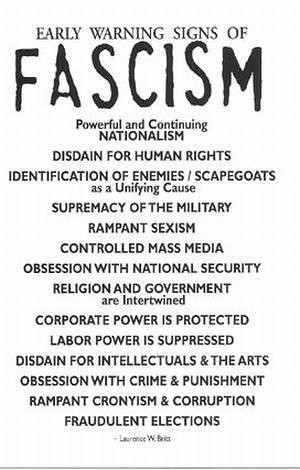Your cart is currently empty!
America’s Crossroads Between Democracy and Authoritarianism

History teaches us a crucial lesson: democracy is not guaranteed. It requires constant vigilance. Today, concerns about democratic erosion in the United States—and the ripple effects on global democracy—are growing, raising critical questions about what history can teach us and how societies worldwide can recognize and respond to these challenges before it is too late.
Rising Concerns in U.S. Politics and Global Relations
Recent developments in U.S. domestic policy and international relations have sparked significant concern—not only among its allies, but also among Americans themselves. Policies like tariffs on Canadian and Mexican imports, alongside increasing trade restrictions, have strained relations with two of the country’s closest economic partners. Mexico’s response—limiting genetically modified crops—signals potential economic decoupling, while rising tensions with Canada have prompted concerns about the long-term stability of North American cooperation.
These domestic and foreign policy shifts have had ripple effects globally, triggering concern from European nations and other democratic partners. In Europe, there is growing unease about the U.S.’s commitment to international alliances and democratic values.
European leaders have questioned the U.S.’s dedication to NATO and the international order that has supported democracy and economic stability for decades. Furthermore, European officials are increasingly wary of unpredictable U.S. actions on the global stage and are beginning to assess alternative alliances in case U.S. policies become more erratic.
While the focus in the U.S. remains on domestic concerns, the international community watches closely—Europe, in particular, is highly sensitive to the rise of nationalism and authoritarian rhetoric in the U.S., given its own historical experiences with the erosion of democracy.
Understanding the Historical Patterns of Democratic Decline
Authoritarian shifts rarely occur overnight. They usually begin with gradual changes in political rhetoric, law, and public perception. Recognizing these early warning signs is essential to ensuring democratic resilience. Historically, societies that transitioned toward authoritarian rule exhibited several common patterns:
- Erosion of Democratic Norms: A weakening of institutional checks and balances, challenges to judicial independence, and efforts to undermine a free press.
- Consolidation of Power: Leaders centralizing authority, limiting opposition, or questioning the integrity of elections.
- Escalation of Nationalism and Division: National identity rhetoric, vilification of opposition groups, and policies to suppress dissent.
- Militarization and Foreign Tensions: Using external conflicts or military build-ups as a means to rally domestic support and justify expanding executive authority.
The rise of authoritarianism in the 20th century, particularly in Europe, offers a stark warning. In the years before World War II, many democracies hesitated to confront early signs of authoritarianism, often out of a belief that their democratic institutions were strong enough to withstand pressure. This miscalculation ultimately allowed regimes to consolidate power and led to one of the most catastrophic wars in human history.
Lessons from the Past: The Cost of Inaction
The period leading up to World War II offers some of the clearest examples of what happens when democracies fail to act against rising authoritarianism, particularly with Hitler’s rise to power. The policies of appeasement, the failure to challenge propaganda, and the assumption that democratic institutions would always prevail created an environment in which authoritarian regimes could thrive.
The Holocaust and the broader expansion of fascist ideologies serve as powerful reminders that political complacency leads to devastating consequences. The erosion of rights, targeting of marginalized communities, and suppression of opposition did not occur suddenly—they were the result of years of unchallenged shifts in governance and public sentiment.
This lesson is especially important for Americans today, as the U.S. faces a crisis of democratic norms and growing political division. The U.S. should take heed of these historical examples to avoid similar mistakes and the catastrophic consequences that can follow.

Safeguarding Democracy: What Can Be Done?
In the face of growing authoritarianism, protecting democratic institutions requires both individual and collective action. History has shown that certain measures can help maintain democratic resilience:
- Civic Engagement: Encouraging voter participation, advocating for transparent governance, and supporting policies that reinforce democratic institutions.
- Media Literacy and Access to Information: Promoting independent journalism and combating misinformation to ensure that the public remains well-informed and resilient to propaganda.
- Legal and Institutional Safeguards: Upholding the independence of the judiciary, defending free speech, and preventing executive overreach.
- Strengthening International Alliances: Reaffirming transatlantic relationships and supporting global democratic partnerships to ensure shared values and economic stability.
In Europe, particularly in countries with fragile democratic institutions, these lessons are taken seriously. But in the United States, where political divisions have intensified, it is essential to recognize the role that international alliances, such as NATO and the European Union, can play in reinforcing democratic resilience. Global cooperation remains vital in resisting the forces of authoritarianism.
Preparing for Political and Economic Uncertainty
In periods of democratic instability, individuals and communities often seek ways to protect themselves from potential disruptions. Practical steps include:
- Diversifying Information Sources: Engaging with a range of news outlets, including international media, to gain a broader perspective on political developments.
- Financial Preparedness: Understanding economic risks and ensuring financial stability in times of potential volatility.
- Community Building: Strengthening local and national networks that promote democratic engagement, civic participation, and social resilience.
- Being an Upstander: Standing up against injustice, misinformation, and authoritarian rhetoric. This means actively resisting harmful policies, supporting marginalized communities, and speaking out when democratic principles are threatened.
- Do Not Comply: Refusing to adhere to undemocratic or unethical directives, whether from government, corporate, or other influential powers. Non-compliance can take many forms, from peacefully protesting to defending the rights of others and refusing to support policies that erode freedoms.
A Defining Moment for Democracy
The current political climate in the United States is a reflection of broader global trends in democratic backsliding. History warns us that ignoring the early signs of authoritarianism can have irreversible consequences. While the challenges in the U.S. are significant, they are not insurmountable. History also teaches us that democratic resilience is possible through informed action, civic participation, and an unwavering commitment to the values of freedom, justice, and equality.
The question Americans must ask themselves is this: Will we take the necessary steps to protect democracy, or will we allow history to repeat itself? The time to act is now—not only for the United States, but for the future of democracy worldwide.
Share Your Perspective
Subscribe to Truthlytics today to stay informed and dive deeper into the issues that matter.
Already subscribed? Log in to join the conversation and share your thoughts in the comments below!




